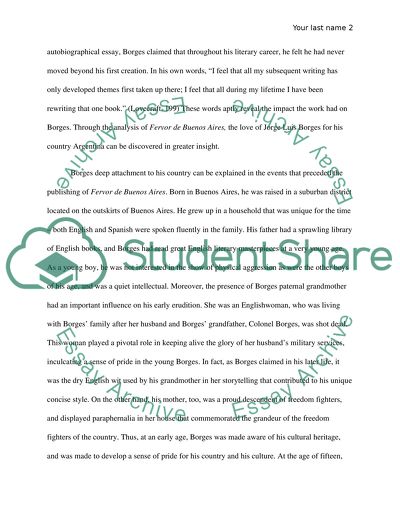Cite this document
(Jorge Luis Borges and his Great Love for Argentina Article, n.d.)
Jorge Luis Borges and his Great Love for Argentina Article. https://studentshare.org/literature/1598371-jorge-luis-borges-and-hes-great-love-for-argentina
Jorge Luis Borges and his Great Love for Argentina Article. https://studentshare.org/literature/1598371-jorge-luis-borges-and-hes-great-love-for-argentina
(Jorge Luis Borges and His Great Love for Argentina Article)
Jorge Luis Borges and His Great Love for Argentina Article. https://studentshare.org/literature/1598371-jorge-luis-borges-and-hes-great-love-for-argentina.
Jorge Luis Borges and His Great Love for Argentina Article. https://studentshare.org/literature/1598371-jorge-luis-borges-and-hes-great-love-for-argentina.
“Jorge Luis Borges and His Great Love for Argentina Article”. https://studentshare.org/literature/1598371-jorge-luis-borges-and-hes-great-love-for-argentina.


